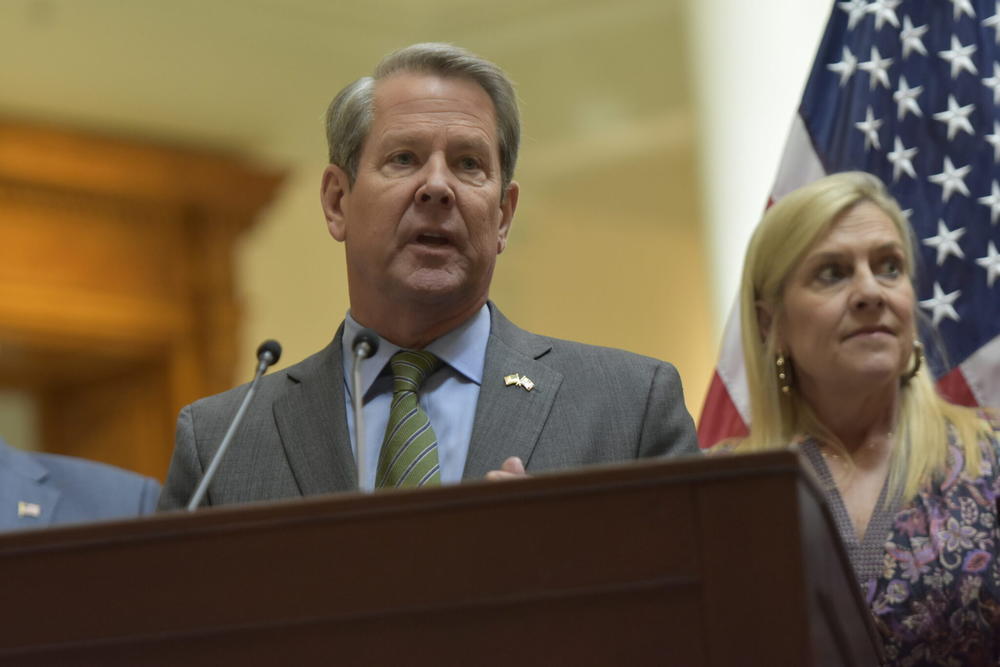
Caption
Gov. Brian Kemp has said he plans to use his “leadership committee” to influence state legislative races this year.
Credit: Ross Williams/Georgia Recorder

Gov. Brian Kemp has said he plans to use his “leadership committee” to influence state legislative races this year.
The Democratic Party of Georgia is challenging the constitutionality of a 2021 state law that allows Republican Gov. Brian Kemp and others to raise and spend unlimited campaign funds.
The lawsuit was filed Thursday in federal court and names only Kemp in his official capacity as governor as a defendant. Kemp, who signed the proposal into law, has raised tens of millions of dollars through his “leadership committee” created under the measure.
The state party is also asking the court to block the law while the legal challenge moves through the process.
The law was always controversial. The leadership committees are available to just a few politicians, whose special committees can accept contributions during legislative sessions when others are barred from fundraising while voting on legislation and allocating state funds.
But Democratic party leaders say it was the governor’s decision to use his leadership committee, called Georgians First Leadership Committee, to target certain Democratic lawmakers while protecting GOP lawmakers who face tough election battles this year that triggered the lawsuit. He has pledged to spend $1.5 million on these races.
Legislative candidates are limited to raising $3,300 from a single contributor during the primary and general elections.
Former Democratic state Sen. Jen Jordan, who is an attorney and is representing the state party in the legal challenge, called Kemp’s plan “blatantly unconstitutional.” Jordan, who stepped down to run for state attorney general in 2022, was serving in the Senate when the bill passed along party lines and blasted the proposal at the time.
Jordan said the law creates a scheme where one set of candidates can circumvent the campaign finance rules while their opponents must follow them.
“Incumbency does have its advantages, but what this law does is it adds steroids to the advantages of incumbency by handing the power to these select few to ignore the campaign finance laws altogether,” Jordan said during a press conference Thursday.
“At a time when the public trust feels like it’s at an all-time low, we had politicians actually write and pass and sign into law a scheme that really was intended only to benefit them. And to be quite frank, that’s exactly what it has done,” she added.
In addition to the governor, the sitting lieutenant governor and the Democratic and Republican caucuses in both chambers can set up a leadership committee.
Candidates challenging the governor and lieutenant governor can also create a special committee during a five-month period. But the lawsuit argues that the law gives incumbents an unfair fundraising advantage because they are able to accumulate contributions over a greater time period while the Democratic challengers have to start from scratch.
The law has survived previous legal challenges, including from a former GOP candidate for governor, David Perdue. This time, challengers are arguing the law violates the First Amendment freedoms of association and speech and 14th Amendment right to be treated equally.
The complaint says the committees “monetizes political cronyism to the benefit of the political allies of the incumbent Governor, Lieutenant Governor, and the leadership of the House and Senate Caucuses, and to the detriment of essentially everyone else.”
A spokesman for the governor’s office did not respond to a request seeking comment.
This story comes to GPB through a reporting partnership with Georgia Recorder.